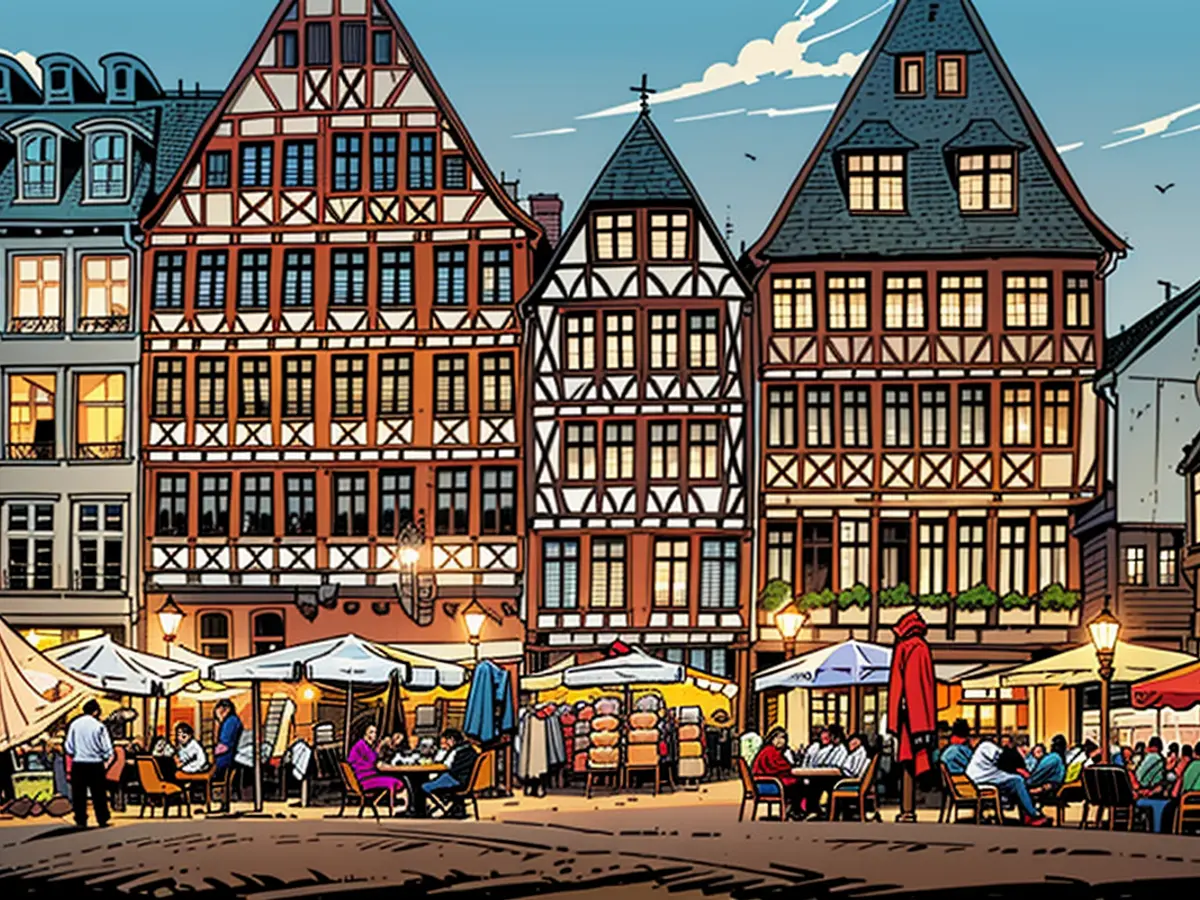Hospitality industry - Tourism recovers - but earnings situation of many businesses weak
According to a two-digit percentage increase in tourism growth in the past year, Hessen Tourism is continuing its recovery trend. This positive trend has persisted in the first three months of the year, according to a spokesperson from the Hessen Agency, who made the statement in response to an inquiry. The Football European Championship, which attracted numerous domestic and foreign visitors, particularly to Frankfurt, could further reinforce this positive effect.
However, the gastronomy, hotels, and pensions cannot profit from this due to high burdens for the industry, as the Dehoga Hessen trade association laments. In addition to guest and overnight numbers, the profitability of businesses must also be considered - and many are not doing well, according to Oliver Kasties, CEO of the association. High energy, food, and labor costs are causing problems for hoteliers and innkeepers, and the increase in the value-added tax rate for food to 19% is putting pressure on consumer behavior. "Birthdays are smaller, and the second drink is no longer ordered," says Kasties.
Reserves of many businesses have been used up
However, businesses should be generating significantly more sales to offset the increased costs. Many have only been able to pay an inadequate entrepreneurial wage since about two to three years ago, reserves have been used up, and there was a lack of funds for urgent investments.
Negative effects have become apparent since the Easter holidays, with the resumption of the increased value-added tax rate at the beginning of the year. This is going so far that more and more guests are bringing their own food to hotels or ordering pizza from delivery services instead of booking half-pension - especially since the delivery pizza is offered with the lower value-added tax rate of 7%. Tax fairness looks different, says Kasties, also in view of the European foreign countries, where lower value-added tax rates for the gastronomy often apply. Pairing this with the often more stable weather there causes many people to spend their vacation time there instead of in the country.
Many businesses are facing repayment demands for state Corona aid
Another Damocles sword for many businesses are repayment demands for state Corona aid. Approximately half of the businesses that have applied for aid could be affected by such repayment demands, estimates Kasties. These arise when it is suspected, based on the final invoices of the companies, that a business has misused the money or received too much. The problem, according to Kasties: The money has already been spent, and many companies have insufficient reserves to repay. "This will still be a major issue."
Of course, there are also businesses that are well-positioned and have weathered the crises of the past years well, but those that may have been struggling before the pandemic have even more to fight against - with consequences also for business density: While in 2017, every tenth community in Hessen still had no professionally run gastronomy or hotel business, in 2021, every fourth community no longer had such a business. Kasties fears that the downward trend will continue, as frustration in the industry grows, and many owners lack future prospects.
Hiking, cycling, and water sports are in demand
The Hessian Agency for Economic Research is optimistic about the upcoming summer holidays. Particularly popular for travels to and in Hesse were the months of June, July and August last year. "One can therefore assume that a lot will be going on Hessia's valuable hiking, biking and water trails during the summer holidays," the spokesperson explained.
Apart from Hessia's largest city Frankfurt, the northern Hessian district of Waldeck-Frankenberg is particularly popular among tourists - it offers the most accommodation facilities in Hessia and a multitude of leisure offers, such as for example the Skywalk in Willingen. In general, the rural area offers "a wealth of leisure activities that are just waiting to be discovered at the start of the summer holidays," Herbert Lang, head of Hessen-Tourismus at the Hessian Agency, stated.
- Despite the positive tourism growth in Wiesbaden, the hospitality industry in Hesse is struggling due to high costs and profitability issues.
- The increase in the value-added tax rate for food to 19% in Frankfurt is affecting consumer behavior, causing guests to bring their own food or order delivery pizza instead of booking half-pension.
- Many businesses in Hesse have used up their reserves and are unable to offset increased costs, leading to insufficient wages for entrepreneurs.
- Repayment demands for state Corona aid are another challenge for many businesses in Hesse, with half of the aid recipients potentially affected.
- The downward trend in the gastronomy and hotel industry is concerning, with every fourth community in Hesse lacking a professionally run business in 2021.
- According to the Hessian Agency for Economic Research, hiking, cycling, and water sports are popular activities in Hesse during the summer holidays, attracting tourists to the region and its valuable trails.








